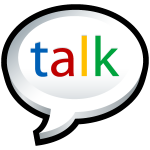 Often, I hear: Why are my ideas not heard but someone else says the same thing and it is taken favorably and even as their idea! Why is that?
Often, I hear: Why are my ideas not heard but someone else says the same thing and it is taken favorably and even as their idea! Why is that?
Ideas get recognized by the way they are stated. Also, ideas are important but they become real with results.
Another key issue is an that an idea can be like seeds in farming. They need time to grow to mature. Be the farmer, nurture your ideas and plant the seeds of thought with more than one source.
Posted on 27 October 2017 Comments (0)
Tags: Anna's Posts, Attitude, Behaviors, Career, Career Builders, Career Killers, communication, Confidence Builders, Interviewing skills, Leadership Presence, Speaking Skills
 Recently, I was asked to help the daughter of a friend prepare for a job interview. These are the dos and don’ts of interview preparation:
Recently, I was asked to help the daughter of a friend prepare for a job interview. These are the dos and don’ts of interview preparation:
Do:
• Prepare by learning what the job and the organization are about
• Have a personal story about yourself
• Be able to state why you are the best person for the job
• Be able share a situation where it did not work out and what you would do differently
• Be enthusiastic and answer questions with confidence even if you’re uncertain of the answer
Don’t
• Go in with the idea that they need you
• Go in without being fully prepared on what the job is about
• Go in dressed for an outdoor event
• Go in with a weak handshake
 Impromptu speaking can create more impact in meetings and when presenting to a group because in these situations, folks can see your confidence and composure in action. Toastmasters use a wonderful segment in each meeting called table topics. Someone selects a topic and calls another member up to talk about it for two minutes.
Impromptu speaking can create more impact in meetings and when presenting to a group because in these situations, folks can see your confidence and composure in action. Toastmasters use a wonderful segment in each meeting called table topics. Someone selects a topic and calls another member up to talk about it for two minutes.
I also found that very often, clients have to answer questions and instead being caught off guard, they responded calmly.
These are a few tips to help answer with confidence when caught in an impromptu situation:
• Take your time to answer
• Repeat the question
• Or rephrase the question
• Offer another way to answer the question
Posted on 15 August 2017 Comments (0)
Tags: Anna's Posts, Attitude, Behaviors, Business Etiquette, Business Social Etiquette, Career Killers, Civility, communication, Leadership, Personal Development, Speaking Skills
 Today’s political environment is so charged that family members sometimes end up not talking to each other. Recently, I was riding in a car and the conversation turned challenging. I requested we not talk about politics unless we could agree to discuss by listening to each other’s point of view. We also agreed if we could not agree to disagree we should talk about other topics instead. If an agreement cannot be made to agree to disagree, then it is better not to discuss politics or any highly charged topic.
Today’s political environment is so charged that family members sometimes end up not talking to each other. Recently, I was riding in a car and the conversation turned challenging. I requested we not talk about politics unless we could agree to discuss by listening to each other’s point of view. We also agreed if we could not agree to disagree we should talk about other topics instead. If an agreement cannot be made to agree to disagree, then it is better not to discuss politics or any highly charged topic.
 More and more folks today wear hearing aids. They are not just for the elderly any more. Be sensitive to those who are using them. You don’t have speak loudly, just directly and succinctly. Speaking loudly makes it sometimes harder to hear. Do not act annoyed or impatient, instead, seek to understand. Wearing hearing aids can be very challenging for the new user.
More and more folks today wear hearing aids. They are not just for the elderly any more. Be sensitive to those who are using them. You don’t have speak loudly, just directly and succinctly. Speaking loudly makes it sometimes harder to hear. Do not act annoyed or impatient, instead, seek to understand. Wearing hearing aids can be very challenging for the new user.
 Good moderators do their homework. First, they know the discussion contents. They know the panelists from interviewing them before the actual event. They have prepared an introduction of each of the them.
Good moderators do their homework. First, they know the discussion contents. They know the panelists from interviewing them before the actual event. They have prepared an introduction of each of the them.
The time allotment for each answer is discussed with each panelist prior to the event. The moderator has the authority to monitor the time. Successful moderators create a safe environment for the panelists and simultaneously satisfy the audience that the promised content has been delivered.
 Often, questions are asked in an intrusive manner during troublesome situations. The tone of voice is as culpable as words in creating a polarized environment as are gotcha questions. We see this in television interviews.
Often, questions are asked in an intrusive manner during troublesome situations. The tone of voice is as culpable as words in creating a polarized environment as are gotcha questions. We see this in television interviews.
Clients with impressive technical skills sometimes act like bulls wandering in a china shop when asking questions. The message to others when this occurs is: I don’t want to work with you.
Start with what they do well and then ask how we can make the situation better to secure a successful result. When they offer what does not work begin to ask the “Why” question which, when answered truthfully, usually brings out a viable solution.
 At a recent event, a client was the last person to accept an award. Unfortunately, the other award winners were funny and seemed to have either practiced their acceptance speeches or were adept at adjusting to statements by earlier award winners.
At a recent event, a client was the last person to accept an award. Unfortunately, the other award winners were funny and seemed to have either practiced their acceptance speeches or were adept at adjusting to statements by earlier award winners.
If I had been hired to coach the client on speaking in public especially when accepting an award, I would have mentioned the following critical elements for a winning acceptance speech:
1. Remember, 30 to 60 seconds is the shortest length of time and 90 seconds to two minutes the longest when accepting an award.
2. Differentiate yourself with your own personal story to tie into the thank you.
3. Be generous with crediting the folks who helped you win the award.
4. Inject a bit of humor. It goes a long way.
5. Practice in front a sounding board.
Following these guidelines will give you an 80% chance to give a memorable acceptance speech.
 Information overload is a killer because it can jumble the true issues. Setting a timeline and a process to gather data are the first critical steps to ensure enough data is gathered. Doing the early research to determine what and how much information is needed sets you on the right path to completion. The timeline of when the project or report is due also acts as a finish line. Duplicate and / overwhelming information will only complicate the end result.
Information overload is a killer because it can jumble the true issues. Setting a timeline and a process to gather data are the first critical steps to ensure enough data is gathered. Doing the early research to determine what and how much information is needed sets you on the right path to completion. The timeline of when the project or report is due also acts as a finish line. Duplicate and / overwhelming information will only complicate the end result.
 Often, folks presenting start with the details and eventually get to the point. However, presenters who begin with the end in mind and then wait for a reaction from the audience can discuss the supporting points based on that audience response, tend to deliver a more impactful message. They show their audience respect and allow them to ask better informed questions.
Often, folks presenting start with the details and eventually get to the point. However, presenters who begin with the end in mind and then wait for a reaction from the audience can discuss the supporting points based on that audience response, tend to deliver a more impactful message. They show their audience respect and allow them to ask better informed questions.
 Often, I hear: Why are my ideas not heard but someone else says the same thing and it is taken favorably and even as their idea! Why is that?
Often, I hear: Why are my ideas not heard but someone else says the same thing and it is taken favorably and even as their idea! Why is that?

 Recently, I was asked to help the daughter of a friend prepare for a job interview. These are the dos and don’ts of interview preparation:
Recently, I was asked to help the daughter of a friend prepare for a job interview. These are the dos and don’ts of interview preparation: Impromptu speaking can create more impact in meetings and when presenting to a group because in these situations, folks can see your confidence and composure in action. Toastmasters use a wonderful segment in each meeting called table topics. Someone selects a topic and calls another member up to talk about it for two minutes.
Impromptu speaking can create more impact in meetings and when presenting to a group because in these situations, folks can see your confidence and composure in action. Toastmasters use a wonderful segment in each meeting called table topics. Someone selects a topic and calls another member up to talk about it for two minutes. Today’s political environment is so charged that family members sometimes end up not talking to each other. Recently, I was riding in a car and the conversation turned challenging. I requested we not talk about politics unless we could agree to discuss by listening to each other’s point of view. We also agreed if we could not agree to disagree we should talk about other topics instead. If an agreement cannot be made to agree to disagree, then it is better not to discuss politics or any highly charged topic.
Today’s political environment is so charged that family members sometimes end up not talking to each other. Recently, I was riding in a car and the conversation turned challenging. I requested we not talk about politics unless we could agree to discuss by listening to each other’s point of view. We also agreed if we could not agree to disagree we should talk about other topics instead. If an agreement cannot be made to agree to disagree, then it is better not to discuss politics or any highly charged topic. More and more folks today wear hearing aids. They are not just for the elderly any more. Be sensitive to those who are using them. You don’t have speak loudly, just directly and succinctly. Speaking loudly makes it sometimes harder to hear. Do not act annoyed or impatient, instead, seek to understand. Wearing hearing aids can be very challenging for the new user.
More and more folks today wear hearing aids. They are not just for the elderly any more. Be sensitive to those who are using them. You don’t have speak loudly, just directly and succinctly. Speaking loudly makes it sometimes harder to hear. Do not act annoyed or impatient, instead, seek to understand. Wearing hearing aids can be very challenging for the new user. Good moderators do their homework. First, they know the discussion contents. They know the panelists from interviewing them before the actual event. They have prepared an introduction of each of the them.
Good moderators do their homework. First, they know the discussion contents. They know the panelists from interviewing them before the actual event. They have prepared an introduction of each of the them. Often, questions are asked in an intrusive manner during troublesome situations. The tone of voice is as culpable as words in creating a polarized environment as are gotcha questions. We see this in television interviews.
Often, questions are asked in an intrusive manner during troublesome situations. The tone of voice is as culpable as words in creating a polarized environment as are gotcha questions. We see this in television interviews. At a recent event, a client was the last person to accept an award. Unfortunately, the other award winners were funny and seemed to have either practiced their acceptance speeches or were adept at adjusting to statements by earlier award winners.
At a recent event, a client was the last person to accept an award. Unfortunately, the other award winners were funny and seemed to have either practiced their acceptance speeches or were adept at adjusting to statements by earlier award winners. Information overload is a killer because it can jumble the true issues. Setting a timeline and a process to gather data are the first critical steps to ensure enough data is gathered. Doing the early research to determine what and how much information is needed sets you on the right path to completion. The timeline of when the project or report is due also acts as a finish line. Duplicate and / overwhelming information will only complicate the end result.
Information overload is a killer because it can jumble the true issues. Setting a timeline and a process to gather data are the first critical steps to ensure enough data is gathered. Doing the early research to determine what and how much information is needed sets you on the right path to completion. The timeline of when the project or report is due also acts as a finish line. Duplicate and / overwhelming information will only complicate the end result. Often, folks presenting start with the details and eventually get to the point. However, presenters who begin with the end in mind and then wait for a reaction from the audience can discuss the supporting points based on that audience response, tend to deliver a more impactful message. They show their audience respect and allow them to ask better informed questions.
Often, folks presenting start with the details and eventually get to the point. However, presenters who begin with the end in mind and then wait for a reaction from the audience can discuss the supporting points based on that audience response, tend to deliver a more impactful message. They show their audience respect and allow them to ask better informed questions.

